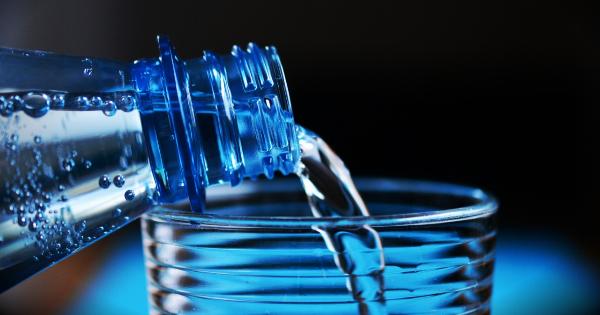Pregnancy is a crucial time in a woman’s life when she undergoes numerous physical and emotional changes.
It is during this period that expectant mothers have to be extra cautious about their lifestyle choices, including their diet and beverage intake. While hydration is an essential aspect of maintaining a healthy pregnancy, it is equally important to be cautious about the types and quantities of beverages consumed.
This article explores the anxiety surrounding limited beverage intake during pregnancy and the need for double caution.
1. Understanding the Importance of Hydration During Pregnancy
Proper hydration is vital for overall health and well-being, and it becomes even more critical during pregnancy.
Water is essential for almost every bodily function, and it helps in carrying nutrients to the baby, regulating body temperature, preventing constipation, and ensuring proper digestion. Dehydration during pregnancy can lead to several complications like preterm labor, neural tube defects, and low amniotic fluid levels.
2. Beverages to Avoid During Pregnancy
Although staying hydrated is crucial, not all beverages are safe for consumption during pregnancy. Some drinks may contain harmful ingredients or high levels of caffeine, which can pose risks to the baby’s development.
It is advisable to avoid the following beverages during pregnancy:.
a) Alcohol: Consuming alcohol during pregnancy has been linked to a range of birth defects, developmental issues, and fetal alcohol syndrome.
b) Caffeine: While moderate consumption of caffeine is generally considered safe, excessive intake can increase the risk of miscarriage, preterm birth, and low birth weight.
c) Sugary drinks: High sugar content in beverages can lead to excessive weight gain, gestational diabetes, and an increased risk of developing preeclampsia.
3. Safe Beverages to Opt for During Pregnancy
Choosing the right beverages during pregnancy not only helps in hydration but also provides essential nutrients to support the baby’s growth. Some safe options include:.
a) Water: Pure and filtered water is the best choice for hydration without any additives or risks.
b) Herbal teas: Certain herbal teas like chamomile, ginger, and peppermint are considered safe for consumption during pregnancy.
c) Freshly squeezed juices: Opting for freshly squeezed juices from fruits like oranges, lemons, and apples can provide vital vitamins and minerals.
4. The Anxiety Surrounding Beverage Intake Restrictions
One of the primary reasons for anxiety surrounding limited beverage intake during pregnancy is the fear of inadequate hydration and its potential impact on the baby’s health.
Expectant mothers often worry that restricting their beverage intake may lead to dehydration, which in turn can cause complications. However, it is crucial to understand that a balanced diet consisting of hydrating foods like fruits and vegetables can help fulfill the body’s water requirements to a certain extent.
5. Debunking the Myth of “Eating Water”
Many people believe that consuming water-rich foods like cucumbers, watermelons, and tomatoes can compensate for limited beverage intake during pregnancy.
While these foods do contribute to hydration, they should not be considered a substitute for drinking adequate water. Pregnant women still need to aim for a daily water intake of at least 8-12 cups.
6. Consulting a Healthcare Provider
Every pregnancy is unique, and individual circumstances may require different dietary guidelines.
To alleviate anxiety and ensure the best care, it is crucial for expectant mothers to consult their healthcare providers regarding their specific hydration needs. Healthcare providers can provide personalized recommendations based on factors such as the mother’s overall health, any existing medical conditions, and the stage of pregnancy.
7. Monitoring Urine Color and Output
One way to assess hydration levels during pregnancy is by monitoring urine color and output. Transparent or light yellow urine generally indicates proper hydration, whereas darker urine may be a sign of dehydration.
Pregnant women should aim for clear or pale yellow urine output as a general guideline.
8. Strategies to Stay Hydrated
Aside from consuming safe beverages, pregnant women can adopt various strategies to ensure proper hydration:.
a) Vegetable and fruit intake: Consuming hydrating foods like cucumbers, watermelons, and oranges can contribute to overall hydration.
b) Regular small sips: Taking small sips of water throughout the day can aid in hydration without overwhelming the digestive system.
c) Hydration reminders: Setting reminders or using smartphone apps to prompt drinking water at regular intervals can help ensure adequate intake.
d) Hydrating snacks: Opting for snacks like celery sticks, strawberries, or yogurt can supplement fluid intake and provide additional nutrients.
9. Conclusion
During pregnancy, limited beverage intake may cause anxiety and concern among expectant mothers.
However, with double caution and by making informed choices, it is possible to maintain proper hydration levels without risking the health and development of the baby. By avoiding potentially harmful beverages and opting for safe alternatives, expectant mothers can prioritize their own health and ensure a healthy pregnancy.































